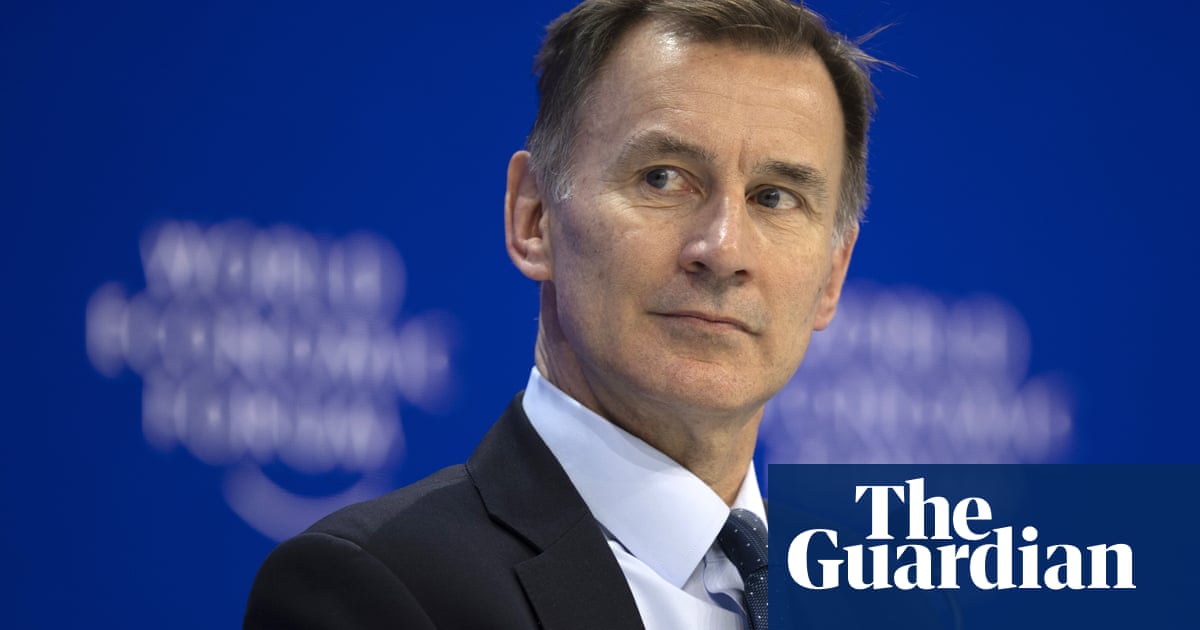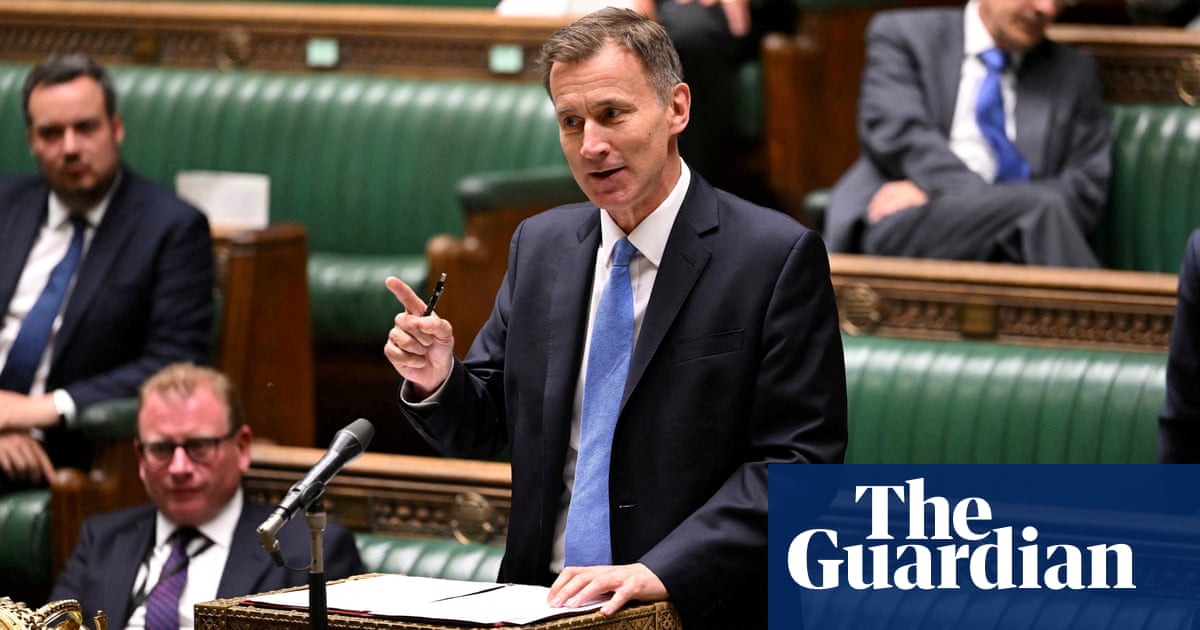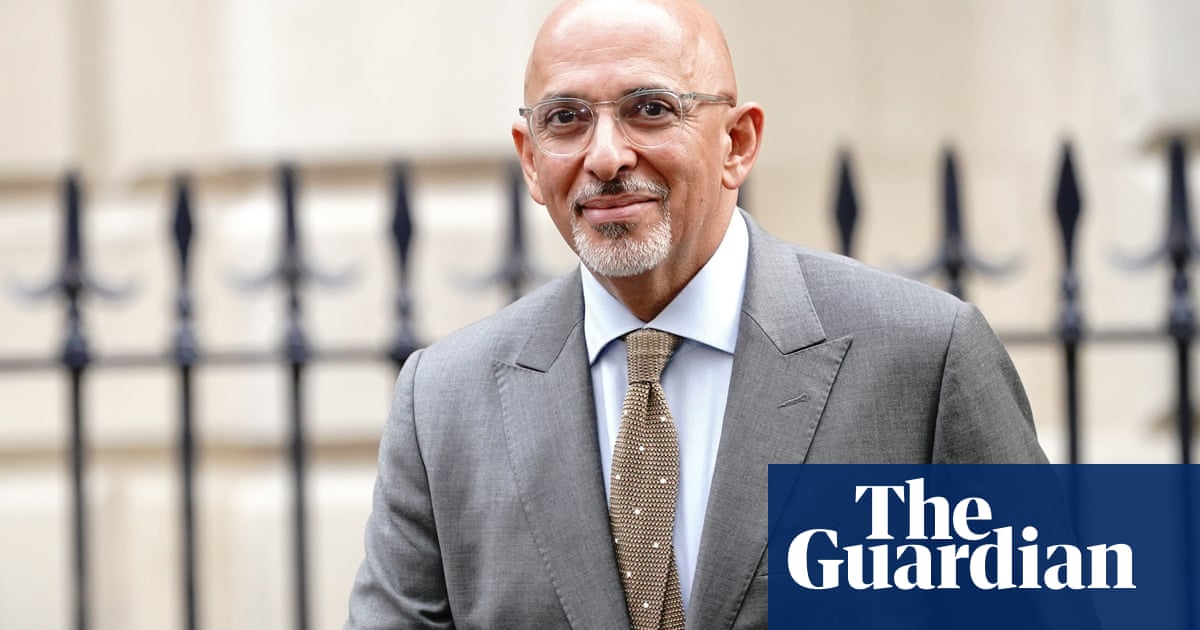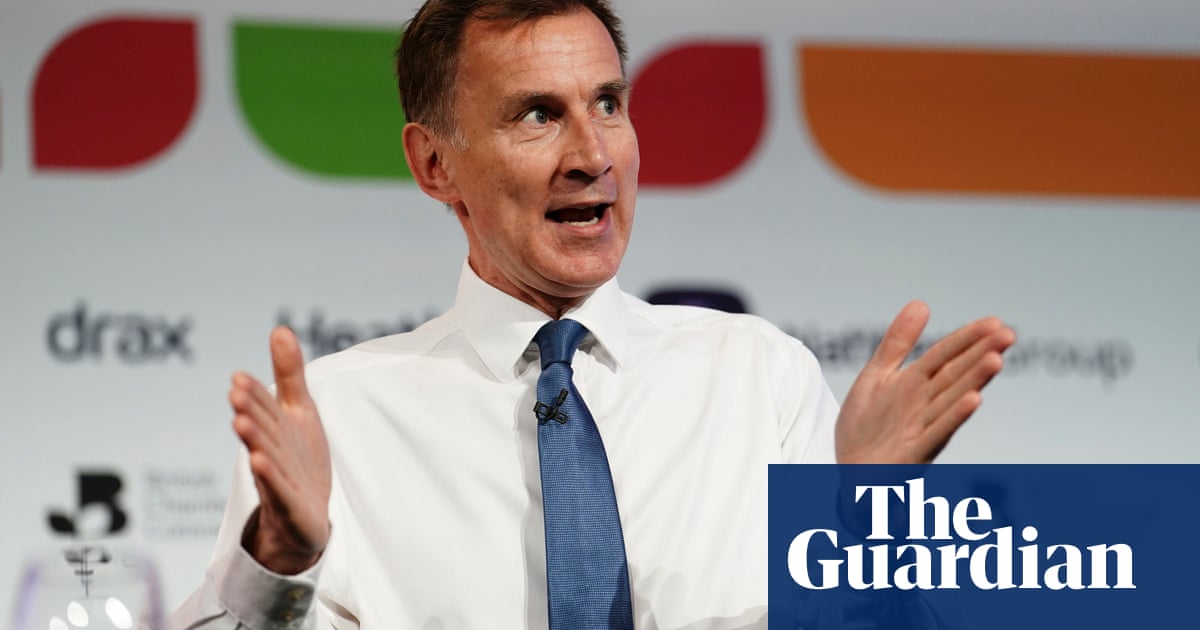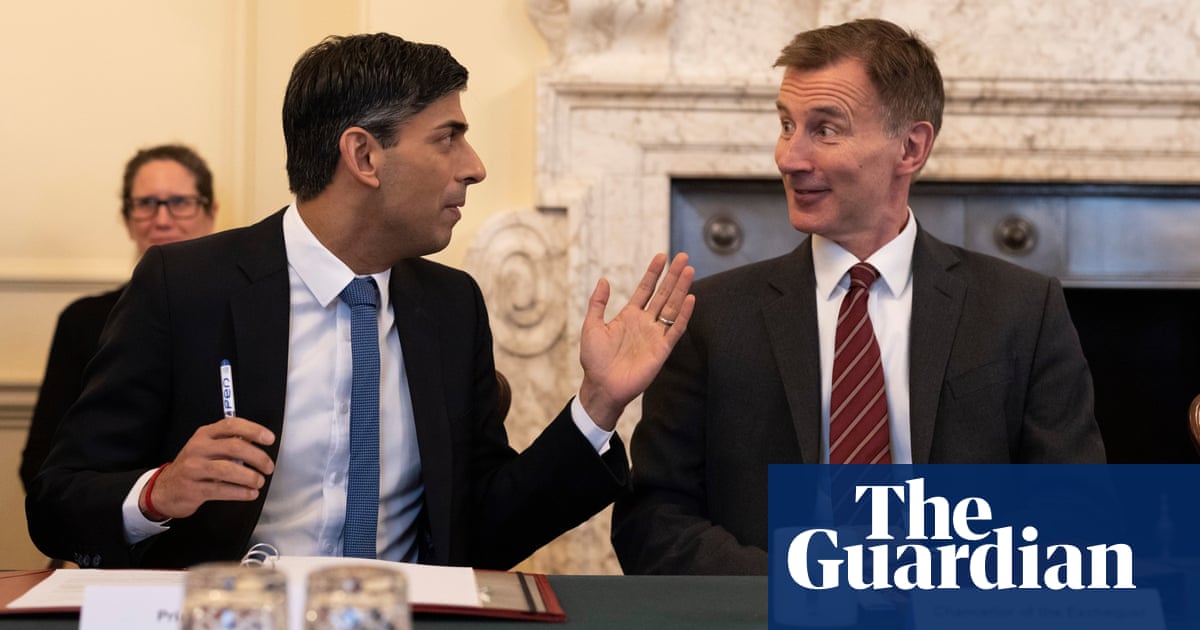
The government has no room for unfunded pre-election tax cuts despite having pushed through a “colossal” £52bn a year stealth raid on household incomes on Rishi Sunak’s watch, the Institute for Fiscal Studies has warned.
Britain’s foremost economics thinktank said the dire state of the public finances meant that attention-grabbing tax cuts risked stoking inflation, leading to higher Bank of England interest rates and a lengthy recession.
On Sunak’s watch, tax revenues as a share of the British economy are on track to climb to the highest sustained levels since the second world war – in part driven by a six-year freeze on income tax thresholds, a policy first introduced during his time as Boris Johnson’s chancellor.
Known as “fiscal drag” and expanded by Jeremy Hunt last year, the IFS said the policy would raise a “colossal” £52bn a year for the exchequer by 2027-28. Suggesting the government may find its plans tough to maintain under heavy political fire, it said the freeze meant as many as 6.5 million more people would pay tax on their income compared with 2020, while 4.5 million more people would be dragged into higher income tax thresholds.
In its annual “green budget” health check before Hunt’s autumn statement next month, the IFS warned the UK remained stuck between weak economic growth on the one hand and the risk of persistently high inflation on the other.
A decision by the chancellor to relax the purse strings “might give a short-term economic sugar rush, but could prove unsustainable and ultimately mean a protracted recession as interest rates rise even further to bring inflation back under control”, it said.
Paul Johnson, the director of the IFS, said Britain was “in a horrible fiscal bind”, leaving Hunt or an incoming Labour government with little room to radically change tax and spending plans. “The price of our high levels of indebtedness, failure to stimulate growth and high borrowing costs is likely to be a protracted period of high taxes and tight spending.”
It comes as Hunt comes under growing pressure from within Conservative ranks to offer a round of pre-election tax cuts in a bid to reverse the Tories’ faltering performance in opinion polls, as Labour heads for a landslide victory comparable to Tony Blair’s 1997 triumph.
Sunak was last month reported to be considering an inheritance tax cut amid widening Tory divisions over tax, highlighted by Liz Truss demanding a sharp change in course from her successor at a packed-out conference fringe event in the party’s annual conference in Manchester earlier this month.
However, a year on from her disastrous mini-budget, Hunt is warning “difficult decisions” will be required at the autumn statement after a sharp worsening of the public finances over the past six months – wiping out what little room he had to cut taxes.
Despite overseeing the largest rise in tax revenues as a share of the economy on records dating back more than 70 years, the threats to the government from stubbornly high inflation, sluggish economic growth and a sharp rise in debt interest costs meant there was still “no room” for electioneering tax and spending promises, the IFS warned.
With the UK facing persistent inflationary risks and the sharpest rise in Bank of England interest rates in decades, the IFS said the government was on track to pay significantly more to service the national debt.
It warned debt interest spending was on track to settle at the highest sustained level since the mid-1980s – about £30bn a year higher than the level to which the UK has grown accustomed to over recent decades – limiting the chancellor’s options for tax and spending.
In forecasts made alongside Citi, the US investment bank, the IFS said it expected government borrowing this year would come in lower than predicted by the Office for Budget Responsibility. However, it said the Treasury’s tax and spending watchdog would probably pencil in much higher budget deficits over the next five years after taking into account the higher cost of government borrowing and weaker growth outlook for the economy.
A spokesperson for the Treasury said: “To secure our public finances we must stick to our plan which is on track to halve inflation, reduce public sector waste and get debt falling.”





